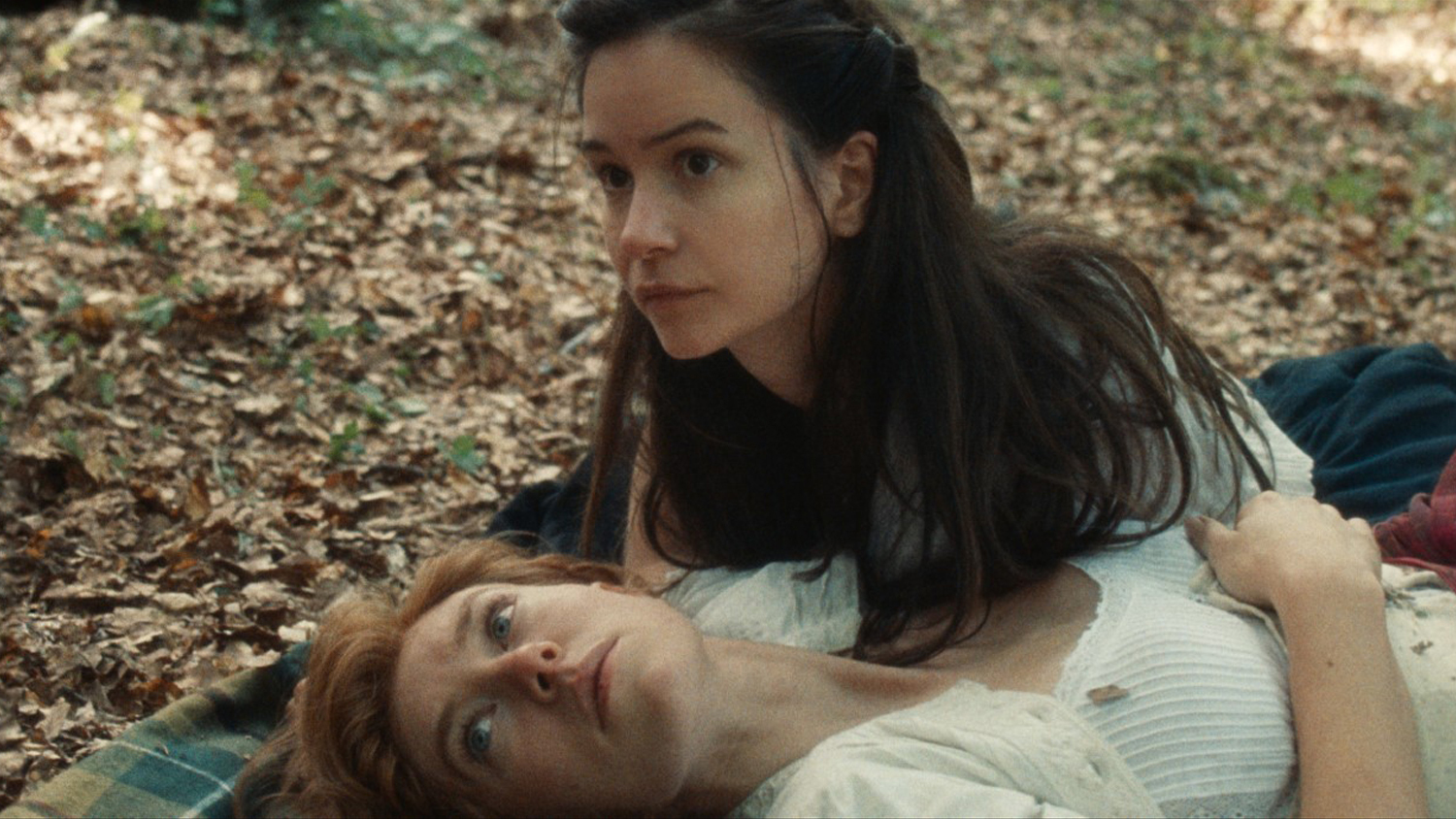The World to Come
by Hope Madden
Valentine’s Day approaches. If you’re looking for a swoon-worthy way to spend it, and you’re willing to risk a public screening, The World to Come may be the date you want to make.
Abigail (Katherine Waterston) and Dyer (Casey Affleck) share a colorless if efficient bond. It may have been slightly more than that a year ago, before their toddler passed. Now Dyer keeps a ledger of expenses and of crop yields while, at his request, his wife writes down what other facts may be forgotten each season.
Facts. Nothing more.
When Abigail meets new neighbor Tallie (Vanessa Kirby, having one hell of a year), facts lose their appeal.
The World to Come is directed with lilting melancholy by Mona Fastvold. She works from a script by Ron Hansen (co-written with Ben Shepard from his short story). The writing boasts the same time stamp and peculiarly observational style as Hansen’s 2007 treasure, The Assassination of Jesse James by the Coward Robert Ford.
Fastvold’s measured approach and the understated delivery from both Waterson and Affleck suit the writing, but they also require patience from the viewer.
This restraint is punctuated by the barely stifled rage of Christopher Abbott (nice to see you) as Tallie’s husband Finney. His energy stands in fierce conflict with the reserve shown by his neighbors, with only Tallie’s unfettered nature to balance things.
Fastvold films Kirby as if she glows from within, a beautiful depiction of both the promise of love and the light she brings to Abigail’s life. Waterston allows Abigail to blossom in that light, and the warmth the two share is sincere and lovely.
Affleck impresses, again, with a performance of resigned grief that sneaks up on you, but it is Waterston who owns the film. At first unsure but willing to wonder, her Abigail embraces the full burst of emotion that she’d never known, and then must wrangle the sizes of the emotions that follow. It’s a fierce performance—maybe Waterson’s best.
Fastvold’s film calls to mind Céline Sciamma’s 2019 masterpiece Portrait of a Lady on Fire. (Indie horror buffs will also be reminded of 2018’s The Wind, for different reasons.) The World to Come measures suffering—particularly that done quietly and expectedly by women—against what pleasures can be stolen in this world.




